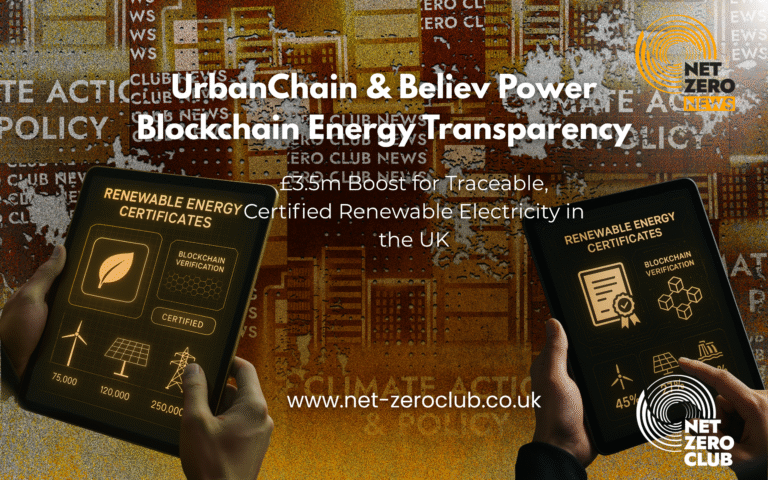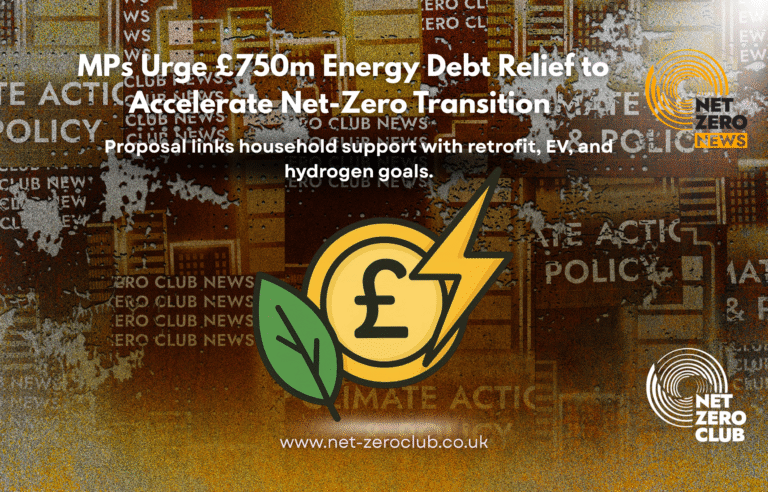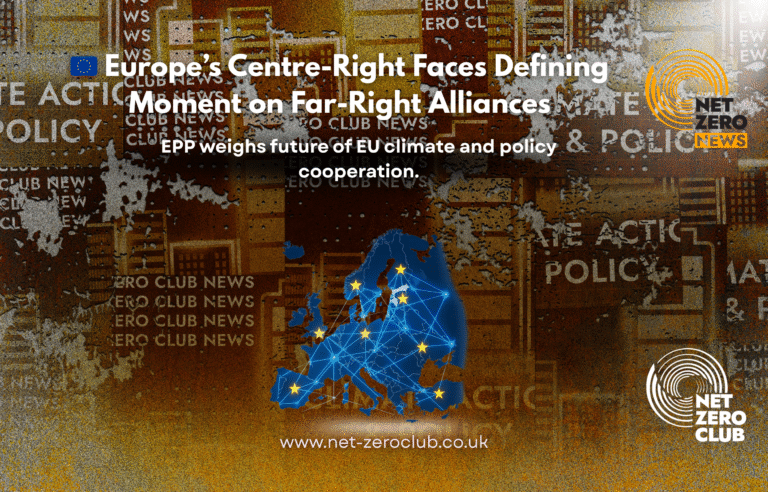Interview with Rachel Kyte: UK’s Climate Envoy Insights

Greetings, Net Zero News Community,
In October 2024, Rachel Kyte CMG was appointed as the UK’s special representative for climate, stepping into a crucial role that has seen notable figures like John Ashton and David King hold the mantle over the past 15 years. As a professor of practice in climate policy at the University of Oxford’s Blavatnik School of Government and dean emerita at Tufts University’s Fletcher School of Law and Diplomacy, Kyte brings a wealth of experience to her position.
Kyte’s previous roles include serving as the UN Secretary-General’s special representative for sustainable energy, CEO of Sustainable Energy for All, and a vice president at the World Bank focusing on climate change. Her extensive background positions her uniquely to address the pressing issues of our time, especially as the world grapples with the ramifications of climate change.
When discussing her priorities, Kyte states, “It’s really finance, forests and the energy transition externally.” These priorities reflect a comprehensive approach to climate policy, addressing the interconnected issues of sustainable finance, ecosystem preservation, and the transition to renewable energy sources.
In a world rife with geopolitical tensions, Kyte acknowledges the challenges ahead, stating, “The Paris Agreement has worked; it just hasn’t worked well enough.” This sentiment acknowledges the strides made since the agreement’s inception while also recognising the urgency for more robust action. She believes that while the framework of the Paris Agreement is vital, it needs to evolve to meet the increasing demands of climate action.
Kyte elaborates on the global response following the US’s previous administration’s withdrawal from the Paris Agreement. “The rest of the world is like, ‘we’re growing, we need to grow, the fastest energy is renewable, how do we get our hands on it?’” This perspective highlights a crucial shift where nations, regardless of the actions of major players like the US, are moving towards renewable energy to secure their economic futures.
Yet, she warns, “1.5C is still alive. 1.5C is not in good health.” The urgency to keep global temperature rise below 1.5 degrees Celsius is paramount, as the consequences of inaction are becoming increasingly evident. Kyte stresses that the concept of net-zero is facing attacks from various political factions across multiple countries, indicating the need for unified global advocacy and understanding of climate commitments.
“Let’s not make a fetish out of under-promising,” she asserts, pushing for realistic yet ambitious climate pledges from key nations. As countries prepare for COP30, scheduled to take place in Brazil later this year, Kyte is focused on ensuring that these pledges translate into actionable commitments. “The conversations that I am engaged in…are like: ‘There’s no question about the direction of travel. The question is about the pace at which it can be executed.’” This highlights the critical importance of not just making promises, but also ensuring that they lead to tangible results.
As part of the UK’s strategy leading up to COP30, Kyte’s team is working extensively with Brazil to create a large nature-finance package. The urgency of this initiative is underscored by the need for adequate funding to protect tropical forests, essential for achieving net-zero targets. “We’ve got to deal with issues of adaptation because [climate change is] happening right now, right here, right everywhere,” Kyte notes, emphasising that the adverse effects of climate change are not a distant threat, but a current reality that requires immediate attention.
In discussions about phasing out fossil fuels, Kyte acknowledges ongoing informal dialogues regarding fossil-fuel subsidies. “I think there are lots of informal discussions…around [whether] there [is] something [that] can be done on fossil-fuel subsidies.” This reflects a growing recognition that addressing subsidy structures is vital for facilitating a transition to cleaner energy sources.
On the subject of the climate-finance gap, Kyte states, “The pressure on our public resources is to make sure that that is targeted at where it can have the most impact.” This statement underlines the importance of strategic investment in climate solutions, particularly in the global south, where the need for climate finance is most acute. She also emphasises the role of the UK as an “activist shareholder” in multilateral development banks, advocating for more impactful climate financing.
Reflecting on COP reform, Kyte suggests that new approaches must be considered. “Should there be…summits every two years? People are talking about that.” This indicates a recognition that the current structure may need to adapt to the evolving challenges of climate change, allowing for more frequent engagement and accountability.
Kyte is clear that the urgency of climate action cannot be sidelined, even amid global challenges. “What I think we’re very forceful about is that you can’t take two to three years out of climate conferences just because the world’s really difficult,” she insists. The importance of momentum in climate discussions is critical, particularly as nations navigate their respective economic and environmental challenges.
As she discusses the impact of US tariffs on clean energy investments, Kyte points out, “[T]he sort of tariff era we’re in, the risk is that it slows down the investment in the clean-energy transition at a time when it needs to speed up.” The hesitancy stemming from tariff uncertainties can delay crucial investments needed for the transition towards renewable energy solutions.
On China’s role in the international climate landscape, Kyte acknowledges the nation’s increasing significance. “They already were a major player. The world had already shifted in that direction.” As the US takes a step back, China’s commitment to multilateralism and its role in the clean energy supply chain become even more critical, shaping the future of global climate action.
Kyte recalls a pivotal moment in her journey towards climate activism, saying, “I remember some very, very strange meeting somewhere in eastern Europe and watching a really badly made movie about migration.” This personal epiphany shaped her understanding of the interconnectedness of climate change and migration, highlighting the global nature of the crisis.
In a recent interview with Carbon Brief, Kyte provided insight into her role and the challenges ahead. She explained the dual focus of her role, which includes supporting ministers in projecting British climate and nature priorities internationally and addressing the urgent need for global climate action.
As she reflects on the current state of international climate policymaking, Kyte emphasises the importance of the Paris Agreement, stating “it’s better than anything else we could negotiate today.” However, she acknowledges the need for the agreement to adapt and evolve in response to the changing geopolitical landscape and urgent climate needs.
Kyte’s commitment to climate action is clear, as she navigates the complexities of international diplomacy and the urgent need for action. Her work as the UK’s special representative for climate places her at the forefront of global efforts to combat climate change, ensuring that the UK plays a pivotal role in the ongoing journey towards a sustainable future.
As we look ahead to COP30 and beyond, the insights shared by Rachel Kyte illuminate the path forward in our collective efforts to combat climate change. The road ahead is fraught with challenges, but with determined leadership and a commitment to actionable change, we can work towards a more sustainable and equitable future for all.
Thank you for joining us as we delve into the complexities of climate action and the vital role of international diplomacy in shaping our planet’s future. Together, as champions of net-zero, we can rise to the challenge and create a world that thrives in harmony with nature.

 Got net-zero news, project updates, or product launches to share?
Got net-zero news, project updates, or product launches to share? 


